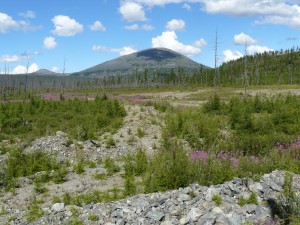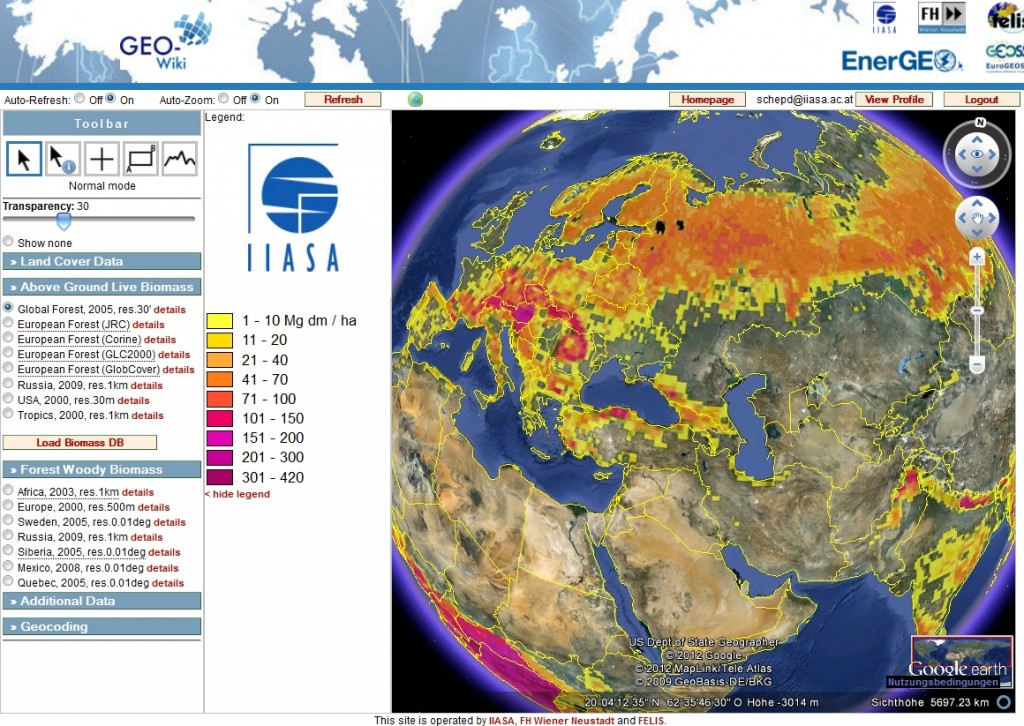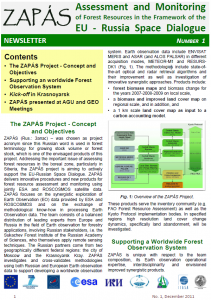The recent Earthzine article points on the importance of the global observation of forest biomass (by Dmitry Schepaschenko).
Terrestrial biomass is considered as an essential indicator for the monitoring of the Earth’s ecosystem and climate. In recent years, many regional biomass datasets have been produced. These were obtained using a wide range of methods — from pure remote sensing RS to the collection of field measurements. The Biomass Geo-Wiki is a new tool from the family of Geo-Wiki.org, which has been launched to bring together different biomass datasets so that they can be viewed and compared with high resolution imagery on Google Earth. The ultimate goal is to perform gap analysis, cross-product validation, harmonization and hybrid product development leading to improved global biomass datasets in the future. Read more…





